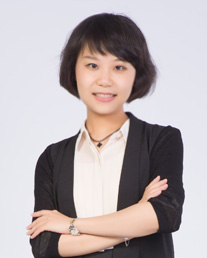

2014-11-07
栏目:考培资讯
作为输出项的雅思口语是中国考生的失分重地,本文中,新通外语雅思名师们将以真题为例,从词汇把握、连词运用上对雅思口语part3做分析,文章结尾给出了雅思口语Part 3回答模版,供大家参考。
例题:Do you think children and old people do the same types of things when they go to a beach?
这是2014年IELTS Part1口语考试中出现的真题。我们知道part2跟part3的话题是相关的,比如part2让你描述一个你去过的近水之地,那么part3就可能让你分析老人小孩去海边会分别做什么,提问的形式相对客观,你回答的策略也就不同,目的是与考官建立真正的交流。我们以part2近水之地的part3相关问题为例,探讨part3的解题思路。
1. 相关词汇的把握
跟part1一样,我们同样要求考生对话题的relevant vocabulary进行准备。包括在沙滩可能会做的一些活动,sunbathing、scuba diving、snorkeling;沙滩的设备:beach umbrella、beach chair、beach volleyball,等等相关词汇。
2. 连词的运用
Well……
First,,,,
However……
Basically,简单的说……
To be honest,说实话呢……
On the second thought再想一想……
As I just mentioned,就像我刚才所说的,……
Actually,……
想了解雅思口语强化课程? >>点这里 免费咨询电话:400-077-0188
3. 问题类型分析
这是一个典型contrast类型的问题,那么这个问题当中我们要看到老人跟小孩在选择沙滩活动上的区别。其实这个问题的根本是老人小孩的差异,那么仔细想我们不难发现,这种差异的根源是they were born and grew up in different years. Their backgrounds and education are quite different.
4. sample answer
Well, first I have to say that there’s a difference when they choose what to do on the beach. Basically, the elderly people are more likely to rent a beach chair and a beach umbrella to read books and enjoy the vocation; they love doing quiet activities.
However, young guys tend to wear bikinis or shorts and play beach volleyball. It might seem pretty weird, but on the second thought, I found that it is quite understandable because they were born and grew up in different years. As I just mentioned, their backgrounds and education are quite different. To those young guys, what the elderly people do might seem so 60’s or 50’s. Actually, to the elderly people, what young guys do are too in to be accepted.
相关阅读:
2014秋季班 你的高分在这里诞生 |
新通外语更懂雅思考试 |

教育背景:马来亚大学英语教育专业一等学士,曾任职于知名国际学校,新通外语名师PK赛全国冠军。
教授科目:雅思/托福/SSAT/SAT 阅读,雅思托福口语,SSAT词汇。
授课风格:条理清晰,活泼激情,教学实践中注重和学生互动,对学生耐心、细致。
学员评价:上吴老师的课很累,因为你要不停地思考。在她的课上,时间过得很快,因为吴老师会用不同的方法让你去发现问题和提高。
 咨询时间:9:00-23:00
咨询时间:9:00-23:00 咨询时间:
咨询时间: